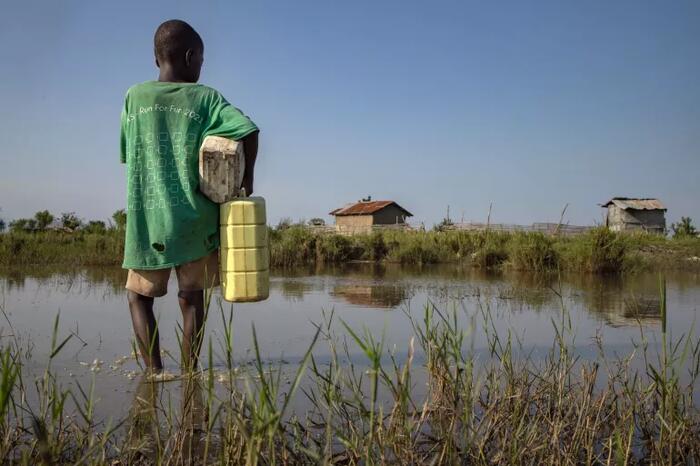
File picture ©UNICEF/UNI644528/Tibaweswa
By Baboloki Semele: UNICEF says Eastern and Southern Africa is facing a severe cholera outbreak, with over 178,000 confirmed cases reported in 16 countries between January 2024 and March 2025. The outbreak has resulted in nearly 2,900 deaths, many of which are children, exacerbated by the region’s ongoing water, sanitation, and hygiene (WASH) crisis.
“Access to safe water is a fundamental need, vital for the survival and development of our children, and most importantly, a human right,” said Etleva Kadilli, UNICEF Regional Director for Eastern and Southern Africa. She highlighted the devastating impact on communities lacking essential WASH services, especially during natural disasters and disease outbreaks.
UNICEF satses that South Sudan and Angola are among the worst-affected nations. In South Sudan, children under 15 account for 50% of cases, while in Angola, they make up 40%. From September 28, 2024, to March 18, 2025, South Sudan reported over 40,000 cases and 694 deaths—marking its worst cholera outbreak in two decades. Angola has recorded over 7,500 cases and 294 deaths across 14 provinces since January 2025, with fears of further escalation.
The crisis is exacerbated by chronic water shortages. Data from 2022 showed that nearly 120 million people in the region, including 60 million children, drink unsafe water. Furthermore, 174 million people lack hygiene facilities at home, and at least 71 million practice open defecation, increasing the risk of disease outbreaks.
Severe floods and droughts have further damaged critical water infrastructure, leading to groundwater depletion and the destruction of reservoirs and pipelines. This has heightened the vulnerability of children to waterborne diseases such as cholera, diarrhea, and typhoid, which can be fatal if untreated.
The lack of adequate sanitation also has profound social consequences. Poor sanitation facilities deter children from attending school, particularly girls during menstruation, and girls are disproportionately burdened with the responsibility of fetching water for their households.
On World Water Day, UNICEF reaffirmed its commitment to supporting children in humanitarian contexts and urged governments and stakeholders to take immediate action. The organization outlined four key priorities:
- Increased Funding: Ensuring resilient WASH systems that can withstand crises and provide continuous safe water access.
- High-Level Political Commitment: Prioritizing WASH investments to improve access for vulnerable communities.
- Climate Change Adaptation Investments: Strengthening resilience in child-critical services, including water and sanitation.
- Enhanced Emergency Response Capacity: Building the sector’s ability to respond effectively to WASH emergencies.
“Investing in climate-resilient WASH infrastructure is crucial for child wellbeing and offers significant cost savings, particularly in humanitarian situations,” Kadilli stated. She emphasized that past investments have successfully reduced water supply costs by over 90%, but sustained funding is necessary to maintain progress.
UNICEF stressed that addressing the water crisis requires a collaborative effort from governments, the private sector, and individuals who believe in securing a better future for children. Without continued investment in sustainable WASH systems, millions of children remain at risk of disease, malnutrition, and educational setbacks.
The cholera outbreak in Eastern and Southern Africa is not just a health crisis but a humanitarian emergency that demands urgent attention. Ensuring access to clean water and sanitation is essential to preventing future outbreaks and securing a healthier future for children across the region.